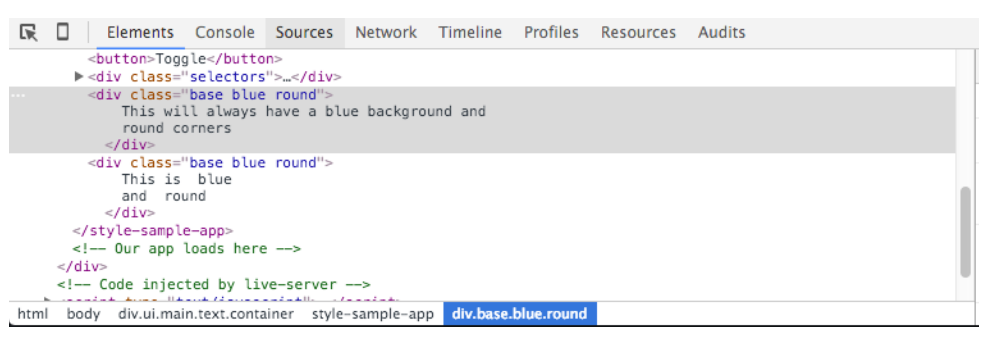Angular提供了一些內置指令(directive),這些添加在HTML元素(element)上的特性(attribute)可以賦予更多的動態行為。 NgIf ngIf指令用於在某個條件下顯示或者隱藏元素,該條件取決於傳入指令的表達式的結果。 NgSwitch ngSwitch指令用於處理更複雜的 ...
Angular提供了一些內置指令(directive),這些添加在HTML元素(element)上的特性(attribute)可以賦予更多的動態行為。
NgIf
ngIf指令用於在某個條件下顯示或者隱藏元素,該條件取決於傳入指令的表達式的結果。
<div *ngIf="false"></div> <!-- 永遠不顯示 -->
<div *ngIf="a > b"></div> <!-- a大於b時顯示 -->
<div *ngIf="str == 'yes'"></div> <!-- str等於"yes"時顯示 -->
<div *ngIf="myFunc()"></div> <!-- myFunc返回true時顯示 -->NgSwitch
ngSwitch指令用於處理更複雜的顯示邏輯。
<div class="container" [ngSwitch]="myVar">
<div *ngSwitchCase="'A'">Var is A</div>
<div *ngSwitchCase="'B'">Var is B</div>
<div *ngSwitchCase="'C'">Var is C</div>
<div *ngSwitchDefault>Var is something else</div>
</div>ngSwitchDefault為可選項,如果不加上它,且找不到匹配項時,沒有內容將在頁面上渲染出來。
NgStyle
ngStyle指令最簡潔的方式是[style.<cssproperty>]="value"這樣的形式。
<div [style.background-color]="'yellow'">
Uses fixed yellow background
</div>另一種方法,採用了鍵值組合的形式:
<div [ngStyle]="{color: 'white', 'background-color': 'blue'}">
Uses fixed white text on blue background
</div>NgClass
ngClass指令也是一種設置樣式的方式,同樣也有兩種設置辦法。
第一種是傳遞對象字面量(object literal),對象的鍵是樣式的類名,值為布爾類型,指明是否應用樣式類。
.bordered {
border: 1px dashed black;
background-color: #eee;
}<div [ngClass]="{bordered: false}">This is never bordered</div>
<div [ngClass]="{bordered: true}">This is always bordered</div>另一種是直接指定樣式類名。
<div class="base" [ngClass]="['blue', 'round']">
This will always have a blue background and
round corners
</div>ngClass中添加的樣式類會與HTML的class特性中已有樣式合併,成為最終的'class'結果。

NgFor
ngFor指令用於迭代集合項,其語法為*ngFor="let item of items"。
let item語法指定每次迭代的元素,items是集合項。
ngFor指令中的集合項可以是對象的數組。
this.people = [
{ name: 'Anderson', age: 35, city: 'Sao Paulo' },
{ name: 'John', age: 12, city: 'Miami' },
{ name: 'Peter', age: 22, city: 'New York' }
];同時還支持嵌套:
<h4 class="ui horizontal divider header">
Nested data
</h4>
<div *ngFor="let item of peopleByCity">
<h2 class="ui header">{{ item.city }}</h2>
<table class="ui celled table">
<thead>
<tr>
<th>Name</th>
<th>Age</th>
</tr>
</thead>
<tr *ngFor="let p of item.people">
<td>{{ p.name }}</td>
<td>{{ p.age }}</td>
</tr>
</table>
</div>在要獲得索引的場合下,只需要稍加變化。
<div class="ui list" *ngFor="let c of cities; let num = index">
<div class="item">{{ num+1 }} - {{ c }}</div>
</div>NgNonBindable
ngNonBindable指令負責通知Angular,頁面上的某塊區域不用額外編譯。
<div class='ngNonBindableDemo'>
<span class="bordered">{{ content }}</span>
<span class="pre" ngNonBindable>
← This is what {{ content }} rendered
</span>
</div>上述例子中,第二個span區塊里的內容不會被Angualr編譯。


